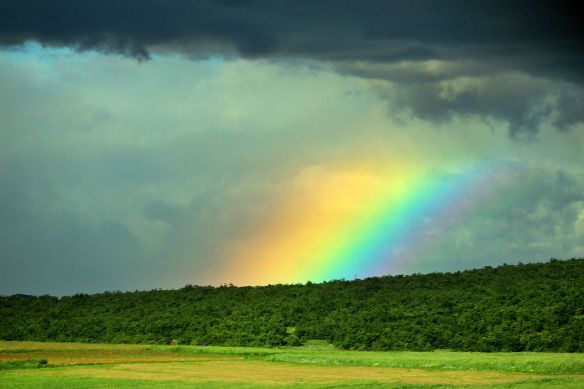
The Highs and Lows of Obedience.
The chronicler of Hebrews eleven is not yet done with Moses. “By faith,” he goes on to relate, “(Moses) kept the Passover and the sprinkling of blood, so that the destroyer of the firstborn would not touch the firstborn of Israel. By faith the people passed through the red Sea as on dry land; but when the Egyptians tried to do so, they were drowned.”
If these verses are characterized by anything, it would be by skillful understatement. They summarize the culmination and turning point of 400 years of Hebrew slavery under the iron fist of the Egyptians. They chronicle God’s plan communicated to Moses and the Hebrew people through specific commands and the miraculous outcomes Moses’ obedience released. God’s call expressed through God’s commands becomes a game-changer for God’s people. What we are told in less than 50 words is not meant to tell us the whole breath-taking story, but to plant in us the seed of the idea that obedience to God’s call puts people on God’s path. A later writer would call it “a highway”, “the Way of Holiness”, and a way not for “wicked fools” but for “the redeemed…and the ransomed of the LORD” (Isaiah 35).
There is a pattern here, a rhythm of contrasting opposites that is not meant to strip the complexity of relationship with God into easy platitudes; rather, it is meant to paint us a picture showing us two things. It shows us that obedience to God brings people out of death into new life. And it shows us that God fills that new life with a complexity of experiences, like a spectrum of colours with a myriad of tints and shades of those colours.
In the first case, God Himself determines who will escape the culture and cycle of death enslaving all humans. His determination is not based on deific fancy, but on His perfect knowledge of each person’s choice to obey Him or not. For Moses and the Hebrews, the direction to obey the unprecedented command of bloody doorway-smearing was beyond the paradigms of either Hebrew or Egyptian culture. The Hebrews obeyed God and lived. The Egyptians hardened their hearts to the command and experienced heart-wrenching death. God is the God of life. Only as we submit to Him do we find we are released from death into eternal life.
Secondly, we see that obedience to God is a path of many tints and shades—of highs and lows—of apparent successes and of seeming failures, of soul-deep wounds and breathless joys. The Hebrews’ victorious escape from Egypt’s oppression was an unimagined high. They travelled and camped for several days, boldly rejoicing in their good fortune of escape, following God’s cloud-and-fire leading. Then suddenly they found themselves huddled enmasse at the shore of the Red Sea, hemmed in by Pharaoh’s pursuing army. Hebrew hearts plummeted in fear and disbelief as they watched a hopeful situation deteriorate and go south. Yet God was present and working through this dark hour. God sent a storm that churned and divided the sea, and commanded the Hebrews to cross the dry seabed throughout the dark and stormy night. They obeyed and the crossing of the Red Sea, followed by the flood-water repulsion of the Egyptian pursuers, became a faith-builder for the Hebrew people for generations to come. It, more than any other single event, would remind the people in later dark hours that God is faithful. He delights to create a spectrum of colour out of shades of darkness for those who follow Him.
God’s call into fullness of life for all people is always and without exception embedded within the paradigm of command-and-obedience. The Hebrew experience becomes a picture for all God-followers; like the Hebrews’ first Passover event, we must daily stand behind the protection of a doorway marked with blood-stains—those of Christ whose obedience paid the redemption price for our sins. Then we must step out and obey His overarching command to live lives of love and holiness in order to access God’s path for us. His path will take us safely through every obstacle and dark night, through every high and low of human experience.
Obedience is essential. Only as we trust Him and obey Him will we recognize that His call brings us blessing. So listen to God’s call and obey Him. Then include yourself in the song of Moses who sang, “O LORD…In your unfailing love you will lead the people you have redeemed. In your strength you will guide them to your holy dwelling…You will bring them in and plant them on the mountain of your inheritance—the place, O LORD, you made for your dwelling, the sanctuary, O Lord, your hands established. The LORD will reign for ever and ever” (Exodus 13:15,17,18).
(Photo Credit: By Ben Njeri [CC BY-SA 3.0 (https://creativecommons.org/licenses/by-sa/3.0)%5D, from Wikimedia Commons)


